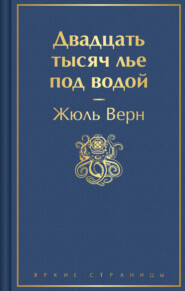По всем вопросам обращайтесь на: info@litportal.ru
(©) 2003-2024.
✖
Вокруг света за 80 дней / Around the World in 80 Days
Настройки чтения
Размер шрифта
Высота строк
Поля
Вокруг света за 80 дней / Around the World in 80 Days
Жюль Габриэль Верн
Легко читаем по-английски
Филеас Фогг заключает пари с приятелями по лондонскому клубу: он уверен, что сможет обогнуть земной шар и вернуться в Лондон всего за 80 дней. Фоггу и его слуге Паспарту предстоит проехать множество стран и пересечь два океана на пути к цели.
Для удобства читателя текст сопровождается комментариями и кратким словарем.
Предназначается для продолжающих изучать английский язык (уровень 4 – Upper-Intermediate).
Жюль Верн / Jules Verne
Вокруг света за 80 дней / Around the World in 80 Days
© Матвеев С. А., адаптация текста, словарь, 2018
© ООО «Издательство АСТ», 2018
Chapter I
Mr. Phileas Fogg[1 - Phileas Fogg – Филеас Фогг] lived in 1872, at No. 7, Saville Row[2 - Saville Row – Сэвиль-роу]. He was one of the most noticeable members of the Reform Club[3 - Reform Club – Реформ-клуб]. Certainly an Englishman, it was more doubtful whether Phileas Fogg was a Londoner[4 - Londoner – уроженец Лондона]. He was never seen on Change[5 - Change – биржа], nor at the Bank, nor in the “City”; no ships ever came into London docks of which he was the owner; he had no public employment; nor had his voice ever resounded in the Court of Chancery[6 - Court of Chancery – Канцлерский суд]. He certainly was not a manufacturer, nor was he a merchant or a gentleman farmer. His name was strange to the scientific and learned societies. He belonged, in fact, to none of the numerous societies in the English capital. Phileas Fogg was a member of the Reform, and that was all.
Was Phileas Fogg rich? Undoubtedly. But those who knew him best could not imagine how he had made his fortune[7 - he had made his fortune – он нажил своё состояние], and Mr. Fogg was the last person to whom to apply for this information. He was not lavish, nor avaricious; for, whenever he knew that money was needed for a noble, useful, or benevolent purpose, he supplied it quietly and sometimes anonymously. He talked very little. His daily habits were quite open to observation.
Had he travelled? It was likely, for no one seemed to know the world more familiarly. He must have traveled everywhere, at least in the spirit[8 - in the spirit – мысленно].
His sole pastimes were reading the papers and playing whist. He often won, which harmonised with his nature; but his winnings never went into his purse, being reserved as a fund for his charities. Mr. Fogg played, not to win, but for the sake of[9 - for the sake of – ради] playing. The game was in his eyes a contest, a struggle with a difficulty.
Phileas Fogg was not known to have either wife or children. He lived alone in his house in Saville Row. He breakfasted and dined at the club, at hours mathematically fixed, in the same room, at the same table, never taking his meals[10 - taking his meals – угощая] with other members, and went home at exactly midnight, only to retire at once to bed. He passed ten hours out of the twenty-four in Saville Row. His mansion was exceedingly comfortable, and to achieve this, Phileas Fogg required his servant to be almost superhumanly prompt and regular. On this very 2nd of October he had dismissed James Forster[11 - James Forster – Джеймс Фостер], because that luckless youth had brought him shaving-water at eighty-four degrees Fahrenheit[12 - eighty-four degrees Fahrenheit – 84° по Фаренгейту (=28,89 °С)] instead of eighty-six[13 - 64 °F = 17,78 °C], and he was awaiting his successor, who was due at the house between eleven and half-past.
Phileas Fogg was seated squarely in his armchair, his feet close together, his hands resting on his knees, his body straight, his head erect; he was steadily watching a complicated clock which indicated the hours, the minutes, the seconds, the days, the months, and the years. A rap sounded on the door and James Forster, the dismissed servant, appeared, along with a stranger.
“The new servant,” said he.
A young man of thirty advanced and bowed.
“You are a Frenchman, I believe,” asked Phileas Fogg, “and your name is John?”
“Jean, if monsieur pleases,” replied the newcomer, “Jean Passepartout[14 - Jean Passepartout – Жан Паспарту]. I believe I’m honest, monsieur, but I’ve had several trades. I’ve been an itinerant singer[15 - itinerant singer – бродячий певец], a circus-rider[16 - circus-rider – цирковой наездник], when I used to dance on a rope. Then I got to be a professor of gymnastics; and then I was a sergeant fireman[17 - sergeant fireman – старший пожарный] at Paris. But I quitted France five years ago, and took service as a valet here in England.”
“Passepartout,” responded Mr. Fogg, “you are well recommended to me; I hear a good report of you. You know my conditions?”
“Yes, monsieur.”
“Good! What time is it?”
“Twenty-two minutes after eleven,” returned Passepartout, drawing an enormous silver watch from the depths of his pocket.
“Your watch is too slow,” said Mr. Fogg.
“Pardon me, monsieur, it is impossible—”
“Four minutes slow. No matter; it’s enough to mention the error. Now from this moment, twenty-nine minutes after eleven, a.m., this Wednesday, 2nd October, you are in my service.”
Phileas Fogg got up, took his hat in his left hand, put it on his head with an automatic motion, and went off without a word. Passepartout remained alone in the house in Saville Row.
Chapter II
“Oh,” muttered Passepartout, “I’ve seen people at Madame Tussaud’s[18 - Madame Tussaud’s – музей мадам Тюссо (музей восковых фигур в Лондоне)] as lively as my new master!” Madame Tussaud’s “people,” let it be said, are of wax, and are much visited in London.
During his brief interview with Mr. Fogg, Passepartout had been carefully observing him. He appeared to be a man about forty years of age, with fine, handsome features, and a tall, well-shaped figure; his hair and whiskers were light, his forehead compact and unwrinkled, his face rather pale, his teeth magnificent. Calm and phlegmatic, with a clear eye, Mr. Fogg seemed a perfect type of that English composure. He was so exact that he was never in a hurry, was always ready, and was economical alike of his steps and his motions. He always went to his destination by the shortest cut; he made no superfluous gestures, and was never seen to be moved or agitated. He was the most deliberate person in the world. He lived alone, and, so to speak, outside of every social relation.
As for Passepartout, he was a true Parisian of Paris[19 - true Parisian of Paris – простой парижанин]. Since he had abandoned his own country for England, taking service as a valet, he had in vain searched for a master after his own heart. Passepartout was an honest fellow, with a pleasant face, soft-mannered and serviceable, with a good round head, such as one likes to see on the shoulders of a friend. His eyes were blue, his complexion rubicund, his figure almost portly and well-built, his body muscular, and his physical powers fully developed by the exercises of his younger days[20 - younger days – молодость].
It would be rash to predict how Passepartout’s lively nature would agree with Mr. Fogg. Hearing that Mr. Phileas Fogg was looking for a servant, and that his life was one of unbroken regularity, that he neither travelled nor stayed from home overnight, he felt sure that this would be the place he was after. He presented himself, and was accepted.
At half-past eleven, then, Passepartout found himself alone in the house in Saville Row. He began its inspection without delay. So clean, well-arranged, solemn a mansion pleased him; it seemed to him like a snail’s shell, lighted and warmed by gas. He suddenly observed a card—a programme of the daily routine of the house. It comprised all that was required of the servant, from eight in the morning, exactly at which hour Phileas Fogg rose, till half-past eleven, when he left the house for the Reform Club—all the details of service, the tea and toast at twenty-three minutes past eight, the shaving-water at thirty-seven minutes past nine, and the toilet at twenty minutes before ten. Everything was regulated and foreseen.
“This is just what I wanted!” said Passepartout to himself. “Ah, we shall get on together[21 - we shall get on together – мы поладим], Mr. Fogg and I! What a domestic and regular gentleman! A real machine; well, I don’t mind serving a machine.”
Chapter III
Phileas Fogg, having shut the door of his house at half-past eleven, reached the Reform Club, and took his place at the habitual table. He rose at thirteen minutes to one, and directed his steps towards the large hall. Half an hour later several members of the Reform came in and drew up to the fireplace. They were Mr. Fogg’s usual partners at whist: Andrew Stuart[22 - Andrew Stuart – Эндрю Стюарт], an engineer; John Sullivan[23 - John Sullivan – Джон Салливан] and Samuel Fallentin[24 - Samuel Fallentin – Сэмюэл Фаллентин], bankers; Thomas Flanagan[25 - Thomas Flanagan – Томас Флэнаган], a brewer; and Gauthier Ralph[26 - Gauthier Ralph – Готье Ральф], one of the Directors of the Bank of England—all rich and highly respectable personages.
“Well, Ralph,” said Thomas Flanagan, “what about that robbery?”
“Oh,” replied Stuart, “the Bank will lose the money.”
“On the contrary,” broke in Ralph, “I hope we may put our hands on the robber. Skilful detectives have been sent to all the principal ports of America and the Continent, and he’ll be a clever fellow if he slips through their fingers.”
“But have you got the robber’s description?” asked Stuart.
“In the first place, he is no robber at all,” returned Ralph, positively.
“What! A fellow who makes off[27 - to make off – стащить] with fifty-five thousand pounds, no robber?”
“No.”
“Perhaps he’s a manufacturer, then.”
“The Daily Telegraph[28 - The Daily Telegraph – «Дэйли Телеграф» (название газеты)] says that he is a gentleman.”
Phileas Fogg bowed to his friends, and entered into the conversation about the affair which had occurred three days before at the Bank of England. A package of banknotes, to the value of fifty-five thousand pounds, had been taken from the principal cashier’s[29 - principal cashier’s – главный кассир] table, who was engaged in registering the receipt of three shillings and sixpence. Of course, he could not have his eyes everywhere. Let it be known[30 - let it be known – да будет известно] that the Bank of England has no guards, nor gratings to protect its treasures, showing a touching confidence in the honesty of the public.
As soon as the robbery was discovered, many detectives hastened off to Liverpool, Glasgow, Havre, Suez, Brindisi, New York[31 - Liverpool, Glasgow, Havre, Suez, Brindisi, New York – Ливерпуль, Глазго, Гавр, Суэц, Бриндизи, Нью-Йорк], and other ports, inspired by the proffered reward of two thousand pounds, and five per cent on the sum that might be recovered[32 - five per cent on the sum that might be recovered – пять процентов с найденной суммы]. Detectives were watching all who arrived at or left London.
As the Daily Telegraph said, the thief did not belong to a professional band. On the day of the robbery a well-dressed gentleman of polished manners[33 - polished manner – прекрасные манеры] was going to and fro[34 - to and fro – туда-сюда] in the paying room where the crime was committed. A description of him was easily procured and sent to the detectives. Everywhere people were discussing the probabilities of a successful pursuit; and the Reform Club was especially agitated.
“I maintain,” said Stuart, “that the chances are in favour of the thief, who must be a shrewd fellow.”
Жюль Габриэль Верн
Легко читаем по-английски
Филеас Фогг заключает пари с приятелями по лондонскому клубу: он уверен, что сможет обогнуть земной шар и вернуться в Лондон всего за 80 дней. Фоггу и его слуге Паспарту предстоит проехать множество стран и пересечь два океана на пути к цели.
Для удобства читателя текст сопровождается комментариями и кратким словарем.
Предназначается для продолжающих изучать английский язык (уровень 4 – Upper-Intermediate).
Жюль Верн / Jules Verne
Вокруг света за 80 дней / Around the World in 80 Days
© Матвеев С. А., адаптация текста, словарь, 2018
© ООО «Издательство АСТ», 2018
Chapter I
Mr. Phileas Fogg[1 - Phileas Fogg – Филеас Фогг] lived in 1872, at No. 7, Saville Row[2 - Saville Row – Сэвиль-роу]. He was one of the most noticeable members of the Reform Club[3 - Reform Club – Реформ-клуб]. Certainly an Englishman, it was more doubtful whether Phileas Fogg was a Londoner[4 - Londoner – уроженец Лондона]. He was never seen on Change[5 - Change – биржа], nor at the Bank, nor in the “City”; no ships ever came into London docks of which he was the owner; he had no public employment; nor had his voice ever resounded in the Court of Chancery[6 - Court of Chancery – Канцлерский суд]. He certainly was not a manufacturer, nor was he a merchant or a gentleman farmer. His name was strange to the scientific and learned societies. He belonged, in fact, to none of the numerous societies in the English capital. Phileas Fogg was a member of the Reform, and that was all.
Was Phileas Fogg rich? Undoubtedly. But those who knew him best could not imagine how he had made his fortune[7 - he had made his fortune – он нажил своё состояние], and Mr. Fogg was the last person to whom to apply for this information. He was not lavish, nor avaricious; for, whenever he knew that money was needed for a noble, useful, or benevolent purpose, he supplied it quietly and sometimes anonymously. He talked very little. His daily habits were quite open to observation.
Had he travelled? It was likely, for no one seemed to know the world more familiarly. He must have traveled everywhere, at least in the spirit[8 - in the spirit – мысленно].
His sole pastimes were reading the papers and playing whist. He often won, which harmonised with his nature; but his winnings never went into his purse, being reserved as a fund for his charities. Mr. Fogg played, not to win, but for the sake of[9 - for the sake of – ради] playing. The game was in his eyes a contest, a struggle with a difficulty.
Phileas Fogg was not known to have either wife or children. He lived alone in his house in Saville Row. He breakfasted and dined at the club, at hours mathematically fixed, in the same room, at the same table, never taking his meals[10 - taking his meals – угощая] with other members, and went home at exactly midnight, only to retire at once to bed. He passed ten hours out of the twenty-four in Saville Row. His mansion was exceedingly comfortable, and to achieve this, Phileas Fogg required his servant to be almost superhumanly prompt and regular. On this very 2nd of October he had dismissed James Forster[11 - James Forster – Джеймс Фостер], because that luckless youth had brought him shaving-water at eighty-four degrees Fahrenheit[12 - eighty-four degrees Fahrenheit – 84° по Фаренгейту (=28,89 °С)] instead of eighty-six[13 - 64 °F = 17,78 °C], and he was awaiting his successor, who was due at the house between eleven and half-past.
Phileas Fogg was seated squarely in his armchair, his feet close together, his hands resting on his knees, his body straight, his head erect; he was steadily watching a complicated clock which indicated the hours, the minutes, the seconds, the days, the months, and the years. A rap sounded on the door and James Forster, the dismissed servant, appeared, along with a stranger.
“The new servant,” said he.
A young man of thirty advanced and bowed.
“You are a Frenchman, I believe,” asked Phileas Fogg, “and your name is John?”
“Jean, if monsieur pleases,” replied the newcomer, “Jean Passepartout[14 - Jean Passepartout – Жан Паспарту]. I believe I’m honest, monsieur, but I’ve had several trades. I’ve been an itinerant singer[15 - itinerant singer – бродячий певец], a circus-rider[16 - circus-rider – цирковой наездник], when I used to dance on a rope. Then I got to be a professor of gymnastics; and then I was a sergeant fireman[17 - sergeant fireman – старший пожарный] at Paris. But I quitted France five years ago, and took service as a valet here in England.”
“Passepartout,” responded Mr. Fogg, “you are well recommended to me; I hear a good report of you. You know my conditions?”
“Yes, monsieur.”
“Good! What time is it?”
“Twenty-two minutes after eleven,” returned Passepartout, drawing an enormous silver watch from the depths of his pocket.
“Your watch is too slow,” said Mr. Fogg.
“Pardon me, monsieur, it is impossible—”
“Four minutes slow. No matter; it’s enough to mention the error. Now from this moment, twenty-nine minutes after eleven, a.m., this Wednesday, 2nd October, you are in my service.”
Phileas Fogg got up, took his hat in his left hand, put it on his head with an automatic motion, and went off without a word. Passepartout remained alone in the house in Saville Row.
Chapter II
“Oh,” muttered Passepartout, “I’ve seen people at Madame Tussaud’s[18 - Madame Tussaud’s – музей мадам Тюссо (музей восковых фигур в Лондоне)] as lively as my new master!” Madame Tussaud’s “people,” let it be said, are of wax, and are much visited in London.
During his brief interview with Mr. Fogg, Passepartout had been carefully observing him. He appeared to be a man about forty years of age, with fine, handsome features, and a tall, well-shaped figure; his hair and whiskers were light, his forehead compact and unwrinkled, his face rather pale, his teeth magnificent. Calm and phlegmatic, with a clear eye, Mr. Fogg seemed a perfect type of that English composure. He was so exact that he was never in a hurry, was always ready, and was economical alike of his steps and his motions. He always went to his destination by the shortest cut; he made no superfluous gestures, and was never seen to be moved or agitated. He was the most deliberate person in the world. He lived alone, and, so to speak, outside of every social relation.
As for Passepartout, he was a true Parisian of Paris[19 - true Parisian of Paris – простой парижанин]. Since he had abandoned his own country for England, taking service as a valet, he had in vain searched for a master after his own heart. Passepartout was an honest fellow, with a pleasant face, soft-mannered and serviceable, with a good round head, such as one likes to see on the shoulders of a friend. His eyes were blue, his complexion rubicund, his figure almost portly and well-built, his body muscular, and his physical powers fully developed by the exercises of his younger days[20 - younger days – молодость].
It would be rash to predict how Passepartout’s lively nature would agree with Mr. Fogg. Hearing that Mr. Phileas Fogg was looking for a servant, and that his life was one of unbroken regularity, that he neither travelled nor stayed from home overnight, he felt sure that this would be the place he was after. He presented himself, and was accepted.
At half-past eleven, then, Passepartout found himself alone in the house in Saville Row. He began its inspection without delay. So clean, well-arranged, solemn a mansion pleased him; it seemed to him like a snail’s shell, lighted and warmed by gas. He suddenly observed a card—a programme of the daily routine of the house. It comprised all that was required of the servant, from eight in the morning, exactly at which hour Phileas Fogg rose, till half-past eleven, when he left the house for the Reform Club—all the details of service, the tea and toast at twenty-three minutes past eight, the shaving-water at thirty-seven minutes past nine, and the toilet at twenty minutes before ten. Everything was regulated and foreseen.
“This is just what I wanted!” said Passepartout to himself. “Ah, we shall get on together[21 - we shall get on together – мы поладим], Mr. Fogg and I! What a domestic and regular gentleman! A real machine; well, I don’t mind serving a machine.”
Chapter III
Phileas Fogg, having shut the door of his house at half-past eleven, reached the Reform Club, and took his place at the habitual table. He rose at thirteen minutes to one, and directed his steps towards the large hall. Half an hour later several members of the Reform came in and drew up to the fireplace. They were Mr. Fogg’s usual partners at whist: Andrew Stuart[22 - Andrew Stuart – Эндрю Стюарт], an engineer; John Sullivan[23 - John Sullivan – Джон Салливан] and Samuel Fallentin[24 - Samuel Fallentin – Сэмюэл Фаллентин], bankers; Thomas Flanagan[25 - Thomas Flanagan – Томас Флэнаган], a brewer; and Gauthier Ralph[26 - Gauthier Ralph – Готье Ральф], one of the Directors of the Bank of England—all rich and highly respectable personages.
“Well, Ralph,” said Thomas Flanagan, “what about that robbery?”
“Oh,” replied Stuart, “the Bank will lose the money.”
“On the contrary,” broke in Ralph, “I hope we may put our hands on the robber. Skilful detectives have been sent to all the principal ports of America and the Continent, and he’ll be a clever fellow if he slips through their fingers.”
“But have you got the robber’s description?” asked Stuart.
“In the first place, he is no robber at all,” returned Ralph, positively.
“What! A fellow who makes off[27 - to make off – стащить] with fifty-five thousand pounds, no robber?”
“No.”
“Perhaps he’s a manufacturer, then.”
“The Daily Telegraph[28 - The Daily Telegraph – «Дэйли Телеграф» (название газеты)] says that he is a gentleman.”
Phileas Fogg bowed to his friends, and entered into the conversation about the affair which had occurred three days before at the Bank of England. A package of banknotes, to the value of fifty-five thousand pounds, had been taken from the principal cashier’s[29 - principal cashier’s – главный кассир] table, who was engaged in registering the receipt of three shillings and sixpence. Of course, he could not have his eyes everywhere. Let it be known[30 - let it be known – да будет известно] that the Bank of England has no guards, nor gratings to protect its treasures, showing a touching confidence in the honesty of the public.
As soon as the robbery was discovered, many detectives hastened off to Liverpool, Glasgow, Havre, Suez, Brindisi, New York[31 - Liverpool, Glasgow, Havre, Suez, Brindisi, New York – Ливерпуль, Глазго, Гавр, Суэц, Бриндизи, Нью-Йорк], and other ports, inspired by the proffered reward of two thousand pounds, and five per cent on the sum that might be recovered[32 - five per cent on the sum that might be recovered – пять процентов с найденной суммы]. Detectives were watching all who arrived at or left London.
As the Daily Telegraph said, the thief did not belong to a professional band. On the day of the robbery a well-dressed gentleman of polished manners[33 - polished manner – прекрасные манеры] was going to and fro[34 - to and fro – туда-сюда] in the paying room where the crime was committed. A description of him was easily procured and sent to the detectives. Everywhere people were discussing the probabilities of a successful pursuit; and the Reform Club was especially agitated.
“I maintain,” said Stuart, “that the chances are in favour of the thief, who must be a shrewd fellow.”

















